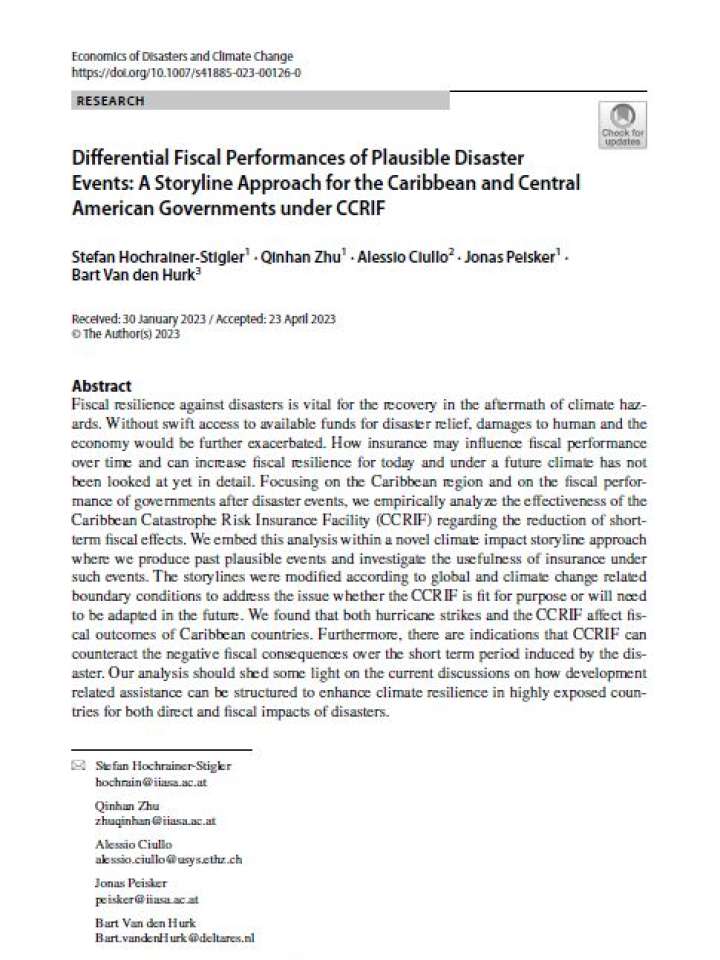Differential fiscal performances of plausible disaster events: a storyline approach for the Caribbean and Central American governments under CCRIF
Focusing on the Caribbean region and on the fiscal performance of governments after disaster events, this study empirically analyzes the effectiveness of the Caribbean Catastrophe Risk Insurance Facility (CCRIF) regarding the reduction of short-term fiscal effects. Fiscal resilience against disasters is vital for the recovery in the aftermath of climate hazards. Without swift access to available funds for disaster relief, damages to human and the economy would be further exacerbated. How insurance may influence fiscal performance over time and can increase fiscal resilience for today and under a future climate has not been looked at yet in detail.
The researchers embed this analysis within a novel climate impact storyline approach where we produce past plausible events and investigate the usefulness of insurance under such events. The storylines were modified according to global and climate change related boundary conditions to address the issue whether the CCRIF is fit for purpose or will need to be adapted in the future. We found that both hurricane strikes and the CCRIF affect fiscal outcomes of Caribbean countries. Furthermore, there are indications that CCRIF can counteract the negative fiscal consequences over the short term period induced by the disaster. This analysis should shed some light on the current discussions on how development related assistance can be structured to enhance climate resilience in highly exposed countries for both direct and fiscal impacts of disasters.
Explore further
